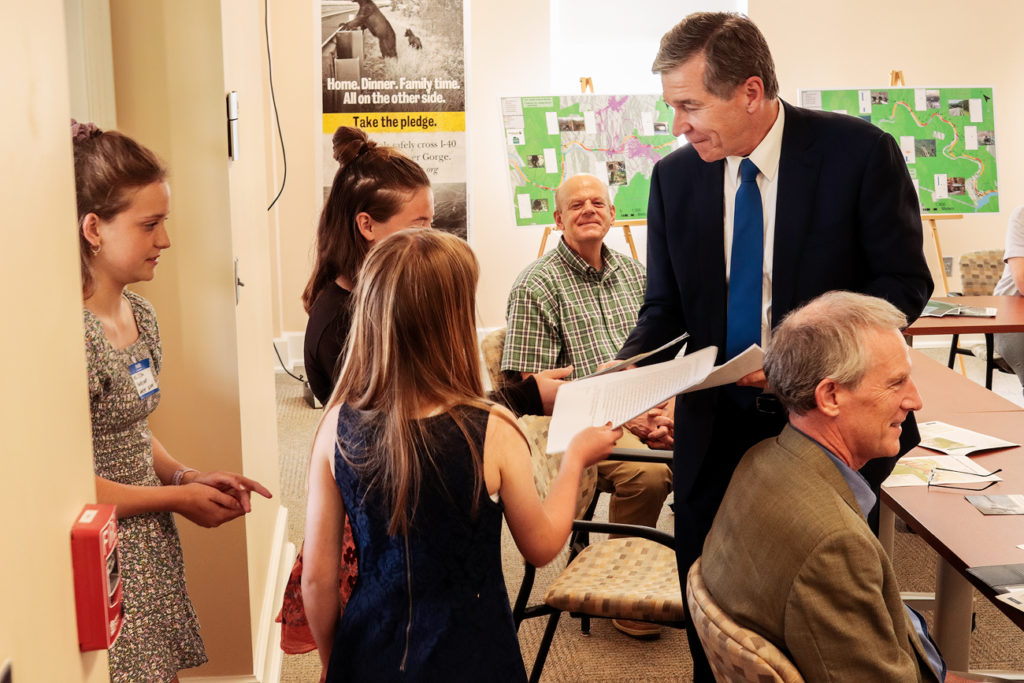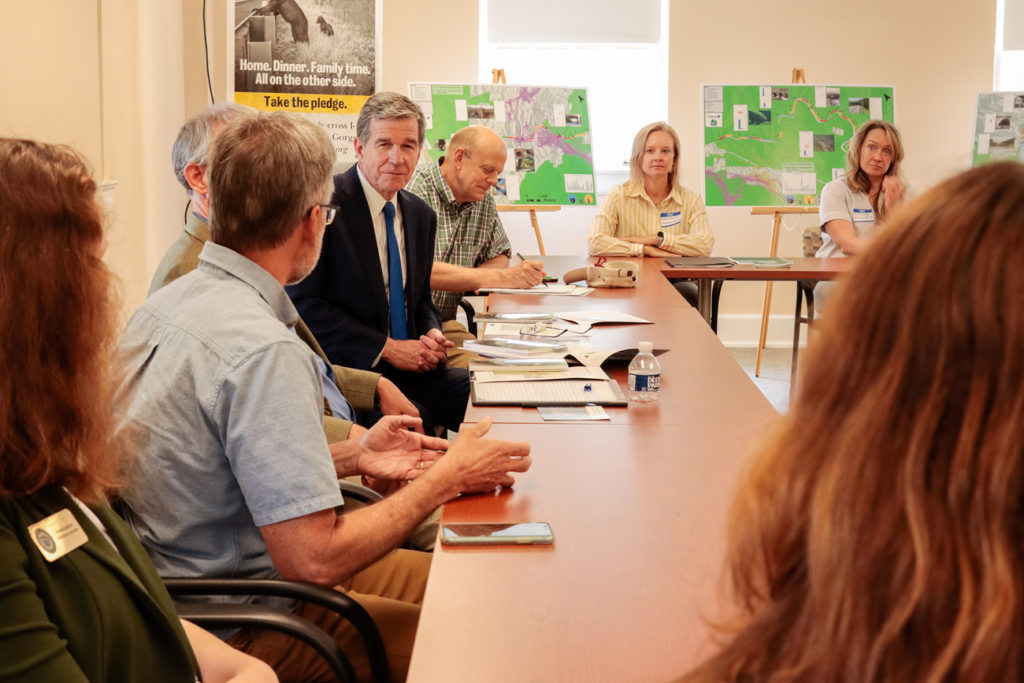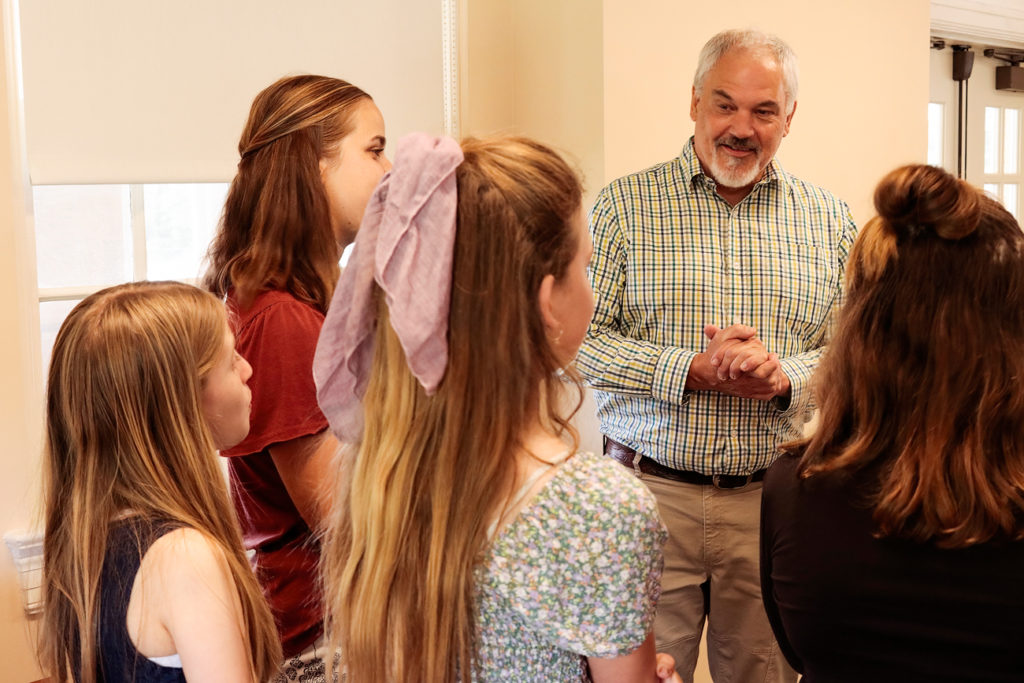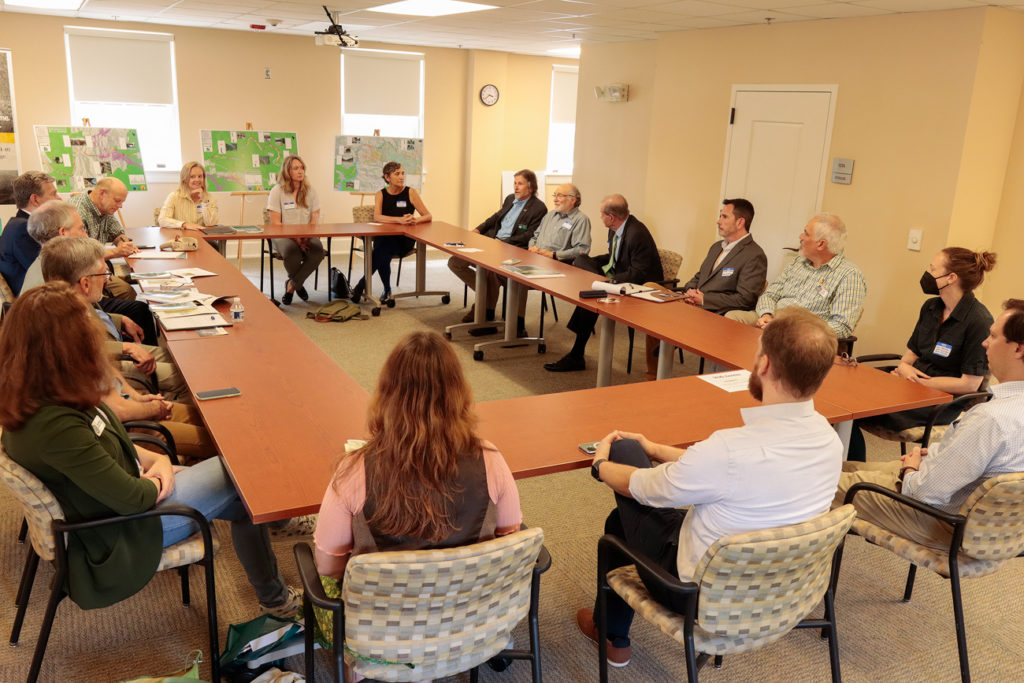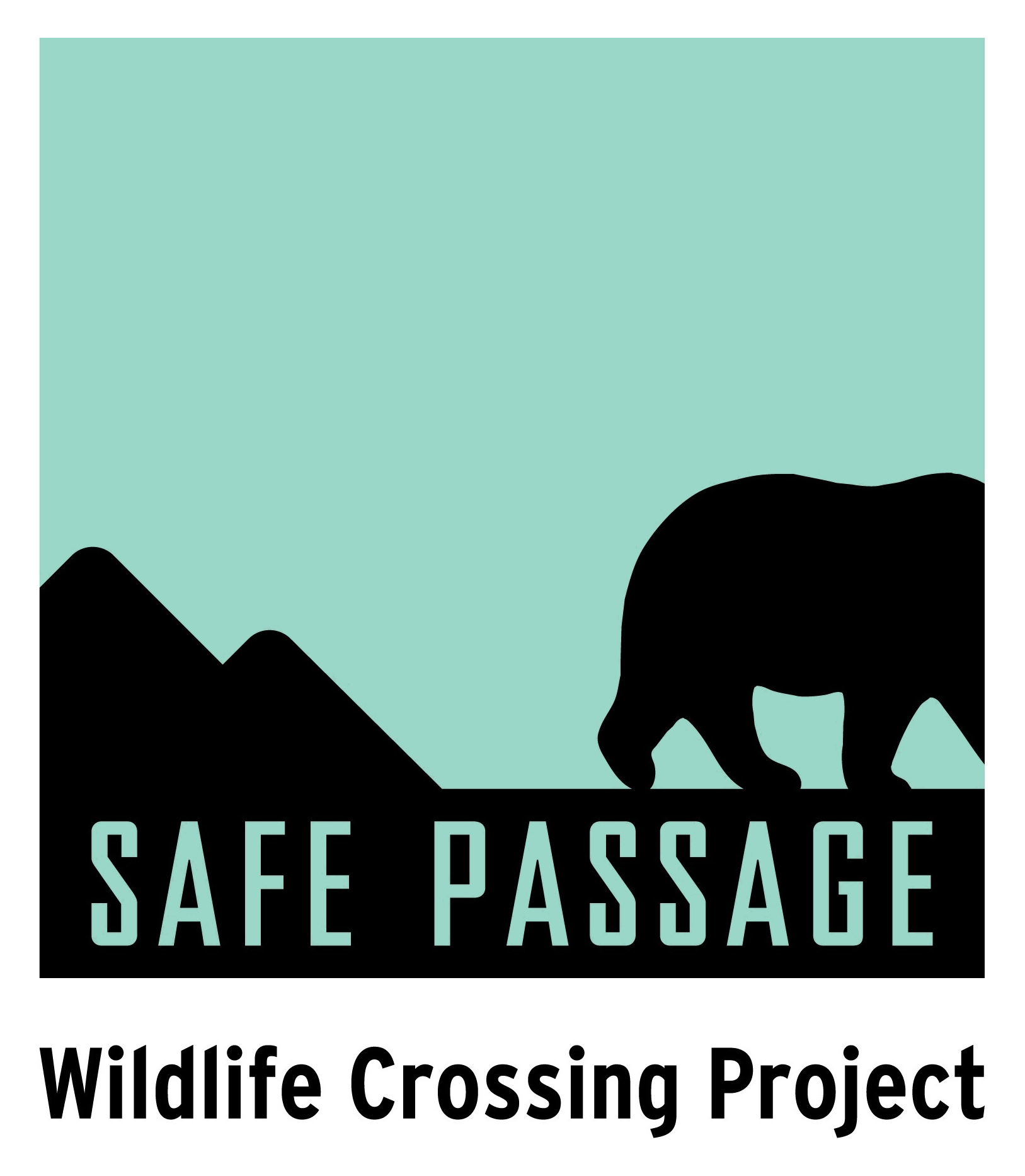On June 2, North Carolina Governor Roy Cooper met with student supporters, representatives, and partners of the Safe Passage Fund Coalition in a roundtable discussion about the importance of wildlife crossings in the state.
Three fifth grade students from FernLeaf Community Charter School in Fletcher delivered letters to the governor advocating for wildlife safety along North Carolina’s highways.
Held at the Western Office of the N.C. Department of Natural and Cultural Resources, the meeting was also attended by representatives from National Parks Conservation Association, The Wilderness Society, Defenders of Wildlife, Southern Appalachian Highlands Conservancy, Great Smoky Mountains Association, Rocky Mountain Elk Foundation, The Conservation Fund, N.C. Wildlife Federation and Wildlands Network — as well as N.C. Wildlife Resources Commissioner Brad Stanback, Secretary Reid Wilson of the N.C. Department of Natural and Cultural Resources and other key figures in the wildlife-crossing work.
Safe Passage facilitator Jeff Hunter began the meeting by introducing the coalition and its mission, then turned the spotlight over to the group’s scientists and researchers, who presented the data that’s been collected and explained how that data will be used to drive decisions about future wildlife crossing locations.
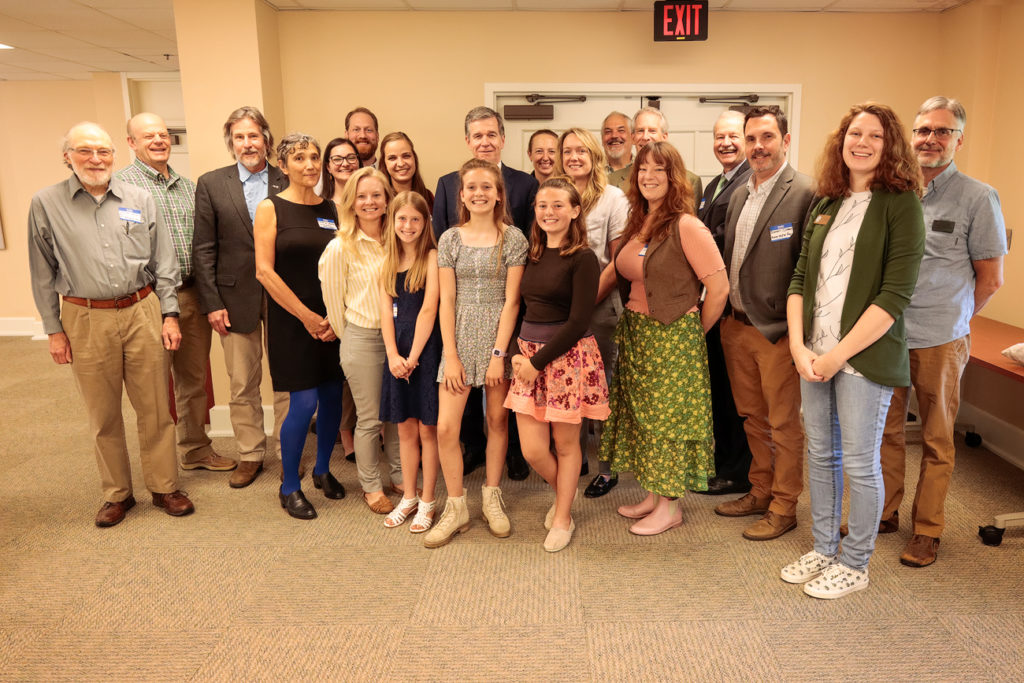
The three students then presented letters from their class, which were drafted during a project-based learning module about the impact of roadways on wildlife and how wildlife crossings can keep both people and animals safe. Over the course of the lesson module, hosted by Defenders of Wildlife and the Safe Passage Fund Coalition, students spent time reading “A Search for Safe Passage,” published by Great Smoky Mountains Association, and enjoyed a field trip to the Pigeon River Gorge to see firsthand how the Safe Passage Fund Coalition is working to make this section of Interstate 40 safer.
“‘A Search for Safe Passage’ was written to engage the next generation — those who may inherit this work in the next 15-20 years — in environmental advocacy.”
— Emma DuFort, illustrator of “A Search for Safe Passage,” who spoke about the book and its message for young people at the June 2 meeting
They also learned the basics of advocacy and how to use social media to share important messages with the world. As part of their advocacy efforts, many of the students wrote letters to the governor asking for support for wildlife crossings locally and across North Carolina.
Following this presentation, the group continued engaging Gov. Cooper in thoughtful discussion, exploring the science behind wildlife crossings and examining the potential for crossings in the state. The group also emphasized that North Carolina could become a leader for this type of work in the Eastern United States, elevating the state’s profile on a national level by improving safety for travelers through progressive, science-driven crossing designs — and the governor voiced his enthusiastic support.
